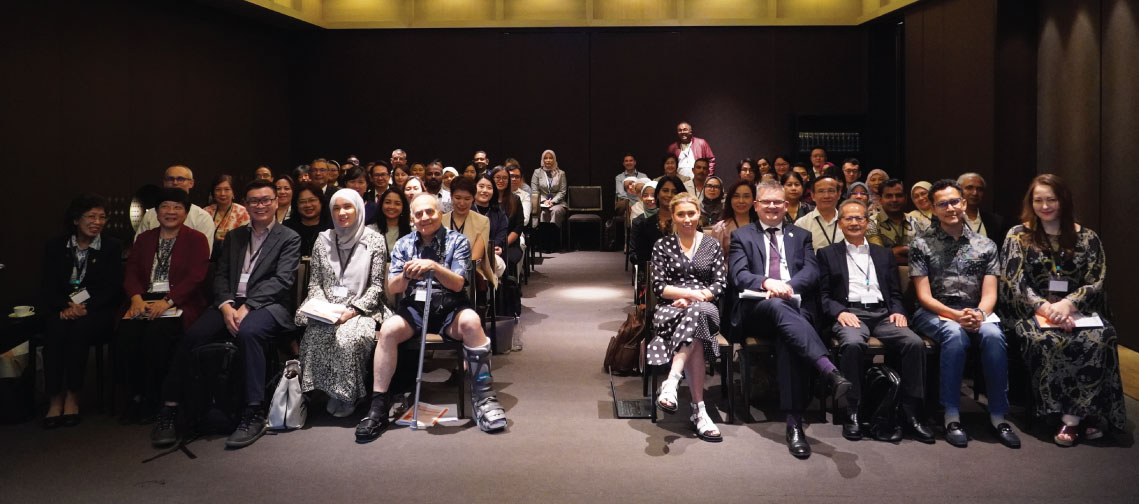1-2 July 2024 | Event
Workshop on Advancing Access to Diagnostics and Therapeutics in Southeast Asia
By The Academy of Medical Sciences

Members of the International Affordable Diagnostics and Therapeutics Alliance (IA-DATA) were delighted to participate in a workshop on Advancing Access to Diagnostics and Therapeutics in Southeast Asia (SEA) on the 1-2 July 2024. This workshop was co-organised by the UK Academy of Medical Sciences and Academy of Science Malaysia and was co-chaired by Professor Sanjeev Krishna and Professor Looi Lai Meng representing respective academies. This policy workshop brought together over 60 scientists, clinicians, health researchers, policymakers, regulators and industry to develop solutions to enhance healthcare access and equity.
The workshop aimed to address healthcare disparities in SEA by promoting multistakeholder collaboration between governments, healthcare professionals, industries and streamlining regulatory reforms for approval of new diagnostics and therapeutics.Enhanced education and training programmes for healthcare professionals were identified as key to building a more resilient and equitable healthcare system in SEA. Knowledge and resource sharing as well as exchange of best practices were identified as key to promoting a unified approach to solving regional healthcare challenges.
The adoption of new technologies was highlighted as being vital to enhancing diagnostics and therapeutics. Innovations such as artificial intelligence (AI), digital health tools and telemedicine were identified as important tools to improve healthcare delivery and accessibility. Adopting these technologies can facilitate remote diagnostics, support decision-making processes and streamline data management. Affordable point-of-care solutions for accurate diagnostics and regional manufacturing were also identified as important tools in decentralising diagnostic solutions and improving clinical care pathways, particularly in rural settings. Innovative drug research and technology platforms such as drug repurposing and plant molecular farming were also highlighted as solutions for reducing cost and improving access to therapeutics.The importance of addressing Intellectual Property (IP) issues and regulatory challenges that hinder the development and deployment of new diagnostic and therapeutic tools was also highlighted as a key focus area.
The workshop concluded that mapping existing expertise in different sectors would improve regional collaboration and enhance best practices, for example an ASEAN Joint Assessment Procedure Initiative, the regional collaboration to improve ASEAN Drug Security and Self-Reliance, or the ASEAN Diagnostics Initiative.
Another key conclusion from the workshop was that the implementation of a coordinated product development partnership (PDP) model based in the Global South could catalyse synergies between regional programmes to accelerate the development of drugs, diagnostics, and vaccines that are relevant to regional needs. Malaysia was highlighted as having significant leadership potential in ASEAN in terms of research, development and manufacturing capacity, in line with Malaysia’s New Industrial Masterplan 2030. Malaysia is also at the forefront of championing South–South collaborations can bring together different geopolitical configurations to tackle the issues arising in healthcare by extending from ASEAN+ nations to include BRICS+ partners such as Brazil, Russia, India, China, and South Africa.
Read the full report here: https://acmedsci.ac.uk/file-download/58091809
